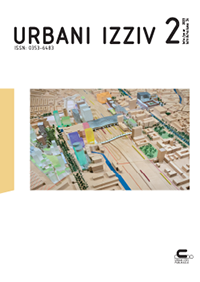Evaluating the sustainability performance of Turkish provinces with fuzzy logic
Evaluating the sustainability performance of Turkish provinces with fuzzy logic
Author(s): Ece Özmen, Funda YirmibeşoğluSubject(s): Rural and urban sociology
Published by: Urbanistični inštitut Republike Slovenije
Keywords: sustainability; sustainable cities; fuzzy logic; Turkey;
Summary/Abstract: Sustainability is the balance of social, economic, and environmental factors. Evolving from history to the present, the goal of this concept is for humanity to live in harmony with nature. Sustainable development, on the other hand, encompasses achieving urban goals for the future while increasing prosperity and efficiently passing resources to future generations. Sustainability indicators are utilized to guide policymaking and monitor progress. Indicators introduced by various institutions vary by country. In developing economies like Turkey, which this study focuses on, there are a limited number of works on measuring sustainability performance. Hence, this study evaluates urban sustainability levels using the fuzzy logic method. Another objective is to develop a measurable and replicable numerical model to analyze the sustainability performance of cities in Turkey. The study employs a measurement set consisting of twenty-seven indicators from the main ecological, economic, and social components, and it assesses the sustainability levels of cities using fuzzy logic rules. Based on the results obtained, all eighty-one provinces of Turkey are classified into quantile groups and mapped. This analytical approach can guide urban planners, policymakers, and decision-makers. This study contributes to enhancing knowledge and understanding sustainability.
Journal: Urbani izziv
- Issue Year: 34/2023
- Issue No: 2
- Page Range: 108-122
- Page Count: 15
- Language: English

